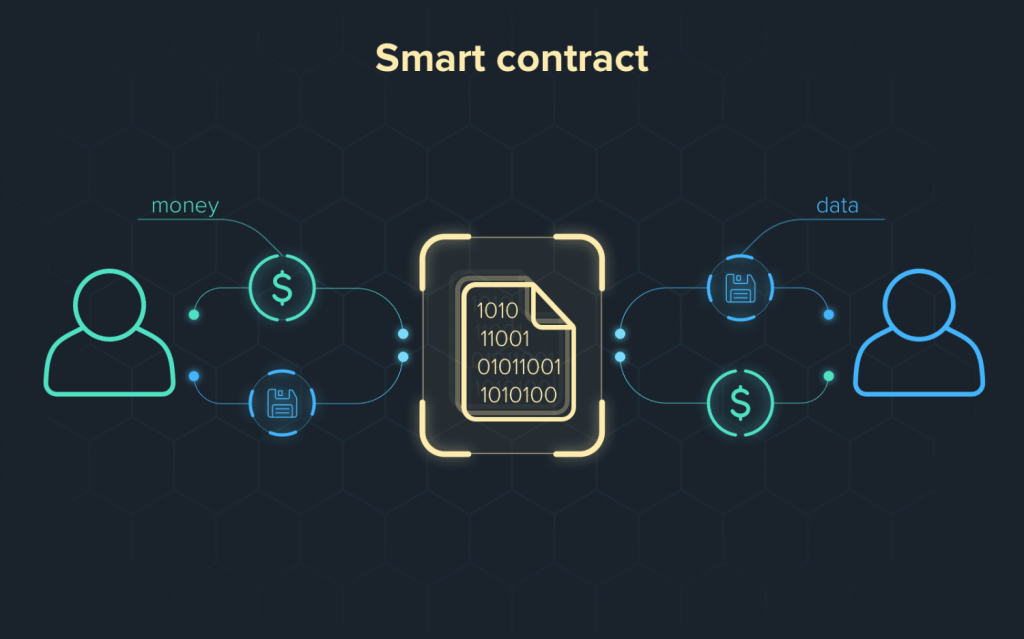Here is an intriguing fact: In the first half of 2022, smart contract vulnerabilities caused 47.3% of Web 3 hacks. Only 52.7% of the Web3 project exploitation was audited. Smart contracts have become revolutionary in Blockchain, crypto, and other digital assets. It enables a trustless contract between two parties without the involvement of a central or third one.
However, these smart contracts run on a computer code that empowers them. Naturally, codes can have bugs and faults. Hackers and malicious elements often seek to take advantage of these bugs and steal valuable assets. That is why smart contract audit has become critical to ensure the security of Blockchain and Dapps. This article will discuss the smart contract audit example and how it works; in fine detail.
Why do smart contracts need to be audited?
Undoubtedly, Blockchain has transformed several aspects of many sectors. However, the long-term evolution of Blockchain has experienced significant hurdles due to the hacks and exploits of numerous well-known blockchain applications.
Three blockchains—BSC, Polygon, and Ethereum—had their smart contracts compromised in 2022, as hackers exposed the security holes on Poly Network due to its unverified smart contracts. Though it had a happy ending as the hackers returned the funds.
However, another infamous hacking incident exposed the risks of having an unaudited smart contract was a $50 million theft from the DAO network in 2016. Hackers took advantage of weak programming in the DAO, a blockchain investment firm run by smart contracts. A smart contract audit is necessary to reduce such risks.
The auditing of smart contracts involves thoroughly evaluating its code to spot security flaws, improper, inefficient coding, and a way to fix the issues. The auditing procedure is crucial to maintain the reliability and security of blockchain systems. The cliché “the code is the law” frequently describes smart contracts. There is no space for error. A smart contract depends mostly on good coding.
A single error or weakness in a smart contract can cause significant losses because they frequently handle vast sums of funds. More specifically, the users and stakeholders who play by the rules of a decentralized program run the risk of losing all the ecosystem’s resources.
A smart contract security audit can assure investors and customers that it will work according to plan and that their assets are secure.
Who does smart contract audits?
A smart contract audit company or service performs checks for known vulnerabilities relevant to the specific business. Additionally, it determines whether the smart contract complies with the Solidity Code Style Guide and confirms that it is free of logical and access control issues. The requirements for smart contract security audits differ among different projects.
The team and the auditing group must first agree on the audit’s parameters and scope. The auditors are provided information about the smart contract’s architecture, design, and other specifics. The testing step follows, during which the auditors examine smaller pieces before larger ones (integration tests). There is manual and automated smart contract audit.
Manual Auditing
In manual auditing, a team of experts/auditors examines each line of code manually to check for compilation and re-entry issues. It helps to find additional security flaws that need attention, such as poor encryption techniques. Manual smart contract auditors can provide the smart contract project team with credible suggestions for improvements based on their observations.
Automated Auditing
The automated smart contract auditing method uses bug detection software to assist smart contract auditors in identifying the precise location of problems. An automated technique frequently helps projects needing a shorter market time to uncover vulnerabilities quickly.
However, automated software might only sometimes be aware of the context and overlook vulnerabilities while inspecting code. One of the most reputable and rapidly expanding firms in blockchain security is Certik.
Certik Coin or also known as Certik crypto empowers it. Since its founding, it has worked with more than 3,200 Enterprises, safeguarded more than $310 billion in digital assets, and found more than 60,000 flaws in blockchain technology.
What does it mean to audit a contract?
An audit of a smart contract is a thorough procedure. A smart contract has tens of thousands or even more lines of code. Even simple problems can often remain out of sight due to the sheer volume. These codes need reviewing for faults and potential vulnerabilities by testing tools and human auditors.
The gathering of all relevant documentation is the initial stage of an audit. It applies to the codebase, white paper, and all other smart contract-related documentation.
By examining these core documents, the auditor can better understand the Blockchain’s design, architecture, and application. The developers and auditors must agree on a code freeze at this point. Any codes written after that point are not considered for auditing contracts. Testing is a critical element that increases the cost of smart contract auditing.
Additionally, testing provides quick and straightforward methods for finding bugs. One could choose from different approaches, such as unit tests focusing on specific functions or integration tests that address issues with more extensive code. Preparing an audit report is the last step in the audit process.
The auditors should finish automatic analysis and manual analysis processes before producing a comprehensive audit report. Along with the audit team’s suggestions, the conversation could aid the project team in understanding the problems and smart contract vulnerabilities.
How do I prepare for a smart contract audit?
Documentation
The less time auditors spend attempting to comprehend your system, the quicker they can go deeper into your code, and the more time they can devote to uncovering defects. Providing quality documentation can enhance the quality of an audit.
Specifying your system’s planned functionality is another indicator of quality documentation. The most crucial traits or conduct that need upholding should be described for each contract.
Clean Code
Code that has been polished and correctly formatted is simpler to read, which lowers the mental effort required to examine it. Cleaning up will enable auditors to concentrate on locating bugs.
Testing
Having close to 100% test coverage ensures that the code will function as it should. Additionally, this enables auditors to devote more time to locating security issues than functional defects. A well-written test suite will be heavily used by auditors to become familiar with the system’s expected behavior and to find additional edge cases to evaluate.
Frozen Code
Before beginning an audit, it’s beneficial to freeze the smart contract code. Changes to the contracts, even those outside the audit’s purview, may cause delays or even require re-audits in some circumstances.
It’s crucial to have a separate branch in the repository utilized for the audit if the code is still being actively developed during the audit. In this manner, a static codebase can be audited, simplifying the present audit and making it simpler to define the scope of subsequent audits.
What are the 4 major parts of a smart contract?
A smart contract is a software running on specific codes that, in certain circumstances, directly and automatically regulates the transfer of digital assets between the parties. Similar to a typical contract, a smart contract operates with automatic contract enforcement.
Smart contracts are computer programs that run as their authors have coded or programmed them to. Smart contracts are enforceable by code, just like a conventional contract is by law. Here are the things that make up a smart contract.
- Code
- Storage
- Memory
- Environmental Variables
How long does a smart contract audit take?
The size and complexity of the code determine how long it takes to execute a smart contract security audit. An audit team can finish a thorough report in a few days. Larger apps, however, could require more time to audit. The success of blockchain applications depends on giving enough time for a thorough security audit.
The scale of the project should be the first and most critical factor for the timing of the audit. For instance, if someone requests an audit of an ERC20 token contract, they will receive the audit result just 48 hours later.
The same line of code cannot be examined simultaneously if the token is used within a Dapp. The auditors may even need a whole month to complete it.
The next thing to account for is the complexity of a project. For instance, if someone is creating a money market or a decentralized exchange. It would take even a trained and experienced auditor a great deal of time to go through it line by line and ensure there aren’t any vulnerabilities.
How smart contracts are verified?
Smart contracts are intended to be “trustless,” which means that before dealing with a contract, users shouldn’t have to put their trust in outside parties. Users and other developers must be able to validate a smart contract’s source code as a need for trustlessness.
Users and developers may rest easy knowing that the published contract code is the same as the active one at the contract address on the Blockchain, thanks to source code verification. Developers convert a smart contract’s source code into another high-level programming language or bytecode before deploying it on the Blockchain.
Source code verification involves looking for discrepancies between a smart contract’s source code, and bytecode helps to create the contract.
Conclusion
The development of smart contracts as a technology is still in its infancy. There are a lot of bad contracts out there that have already cost people a lot of money. The widely used smart contract languages are unsuitable in terms of their analyzability. Although best practices have been established, they are largely disregarded in the industry.
However, at this time, a smart contract audit is the best course of action to ensure its security and stop malicious agents from taking advantage of flaws and vulnerabilities. It will probably take years before better languages and tools become widely accessible.






